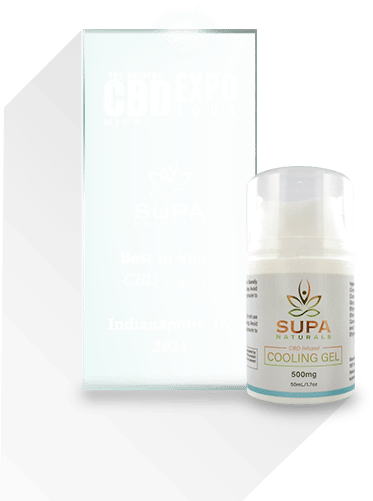CBD Micro-Dosing: What Is It and How Can You Do It?
Cannabidiol (CBD) is a cannabinoid from the cannabis plant. CBD is not the same as tetrahydrocannabinol (THC), which causes the psychoactive effects associated with cannabis. CBD offers users many benefits, even when taken in small quantities. Researchers and physicians continue to explore the benefits of microdosing CBD, but the current consensus supports the use of microdosing for significant positive effects.
What Is CBD Microdosing?
Microdosing refers to a specific method of taking medications and other therapies, such as CBD. Instead of taking a single dose once or twice daily, the user takes several smaller doses throughout the day on a predetermined schedule or as needed. Microdosing offers an effective treatment technique for many health conditions by providing a steady supply of medicine over a longer period. Physicians often use microdosing techniques to introduce new therapies to patients. New CBD users can use this method to learn how CBD affects them and determine if they need less or more CBD per microdose.
How Does Microdosing CBD Affect the Body?
Cannabinoids mimic the natural endocannabinoids found in the body and are managed by the endocannabinoid system (ECS). This system of chemicals and receptors exists throughout the body, including in the nervous and immune systems. It helps regulate many body processes, including immune response, sleep, pain relief, appetite, and mood. CBD interacts with ECS receptors similarly to natural endocannabinoids. When a person microdoses CBD, the ECS system receives a steady flow of cannabinoids that may help reduce chronic pain, inflammation, insomnia, and anxiety. A person’s natural endocannabinoid levels may play a role in how much CBD they need to get the desired results, with lower natural levels requiring a high dose of CBD compared to higher natural levels.
Is It Safe to Microdose CBD?
Microdosing provides a safe method for trying substances for therapeutic purposes, including CBD and prescription medications. In recent years, researchers have even explored the benefits of microdosing LSD and other psychedelics. By microdosing CBD, users can gauge how much CBD they need to experience the desired therapeutic effects and easily adjust the dose as needed. If you want to try CBD microdosing, we recommend finding a product that has gone through third-party testing. This process refers to a CBD producer having a third-party laboratory inspect their product to ensure proper product composition. The CBD market is flooded with products, but little regulation exists to ensure CBD concentration and quality. It can be difficult to know if certain CBD products contain the levels of CBD they claim. By choosing a third-party tested product, you can have confidence that you know how much CBD you’re consuming and that you have the highest quality CBD. All CBD tinctures, edibles, topicals, and other products from SUPA Naturals are tested by an independent third-party lab to ensure potency, quality, and safety.
Why Microdose CBD?
 You may try microdosing CBD for various reasons, whether you’re trying CBD for the first time or want more subtle effects from your CBD oil. CBD microdosing may help you:
You may try microdosing CBD for various reasons, whether you’re trying CBD for the first time or want more subtle effects from your CBD oil. CBD microdosing may help you:
Find Your Perfect Microdose of CBD
Finding your dosage sweet spot can prove challenging when first using CBD oil, edibles, or other CBD products. Some people need less CBD than others to experience all the benefits it can provide. By microdosing, you can begin with a minimal amount of CBD and slowly increase it as needed until you find the best dose for your desired effects.
Spread Beneficial CBD Effects Throughout the Day
People struggling with chronic pain, constant anxiety, or high stress levels may choose to microdose CBD to enjoy the desired benefits throughout the day rather than temporarily. While the effects of a large dose will wear off over time, microdoses evenly spread the effects throughout the day so long as the user maintains their microdosing schedule.
Reset Your CBD Tolerance
The body can build up a tolerance to CBD over time, so people who have used CBD tinctures and other products for extended periods may experience fewer benefits than they once did. Microdosing can help reduce CBD tolerance without the need to stop using it completely. If you’ve noticed that you need continuously higher doses to experience the effects of CBD, you may consider microdosing to reset your tolerance.
Experience Increased Beneficial Effects
Some people experience more significant effects from microdosing CBD compared to taking larger dosages. By taking a smaller amount of CBD more often, users may provide their endocannabinoid systems with cannabinoids more consistently, resulting in improved system function and more significant health benefits.
Save Money
Cannabis and hemp CBD products can be expensive, especially if you take high daily doses. If the price tag has kept you from trying CBD for the first time, consider microdosing. You may be able to save money by making a bottle of CBD oil or a package of edibles last longer by taking smaller doses.
Is Microdosing CBD a Long-term Treatment Option?
 Microdosing CBD may provide a long-term option to manage a variety of symptoms by maintaining a consistent cannabinoid level in the body. However, you may notice you need to take a higher dose over time. Your body may build up a tolerance to even a microdose of CBD if used long enough. Because of this, CBD is not intended to treat most symptoms long-term. Researchers don’t yet fully understand the endocannabinoid system. Still, long-term CBD microdosing may improve overall system function by supplying a steady stream of cannabinoids, resulting in positive long-term effects.
Microdosing CBD may provide a long-term option to manage a variety of symptoms by maintaining a consistent cannabinoid level in the body. However, you may notice you need to take a higher dose over time. Your body may build up a tolerance to even a microdose of CBD if used long enough. Because of this, CBD is not intended to treat most symptoms long-term. Researchers don’t yet fully understand the endocannabinoid system. Still, long-term CBD microdosing may improve overall system function by supplying a steady stream of cannabinoids, resulting in positive long-term effects.
Can Kids Also Microdose CBD?
Medical professionals continue to explore the potential benefits of microdosing CBD for children suffering from various physiological and mental health conditions. Research has already noted a potential for treating children with epilepsy, and studies continue to explore other benefits for managing:
- Anxiety
- Autism
- Chronic pain
- Nausea
Professionals are also optimistic about CBD’s ability to help children improve focus, alertness, memory, and immune function. CBD is not associated with a risk of dependency or dangerous side effects, making it a promising potential option to help with many childhood ailments. Click here to learn more about CBD for kids, including potential beneficial effects, dosage information, and FDA-approved treatments.
What About Pets?
Microdosing CBD has become very popular among pet owners. You may try a pet-friendly CBD product to help your furry friend find relief from anxiety, seizures, and pain. If you have an ailing pet at home, consider SUPA Naturals’ peanut butter-flavored pet treats or one of our other CBD pet products.
How to Microdose CBD
 Many users microdose with a CBD oil or tincture, but you may consume CBD edibles or capsules depending on your CBD intake preference. The important thing is to keep an eye on each CBD dose you consume and how many milligrams of CBD it contains. Tracking your dosages will help you determine how much CBD product and what amount of THC you need for the therapeutic effects you’re looking for.
Many users microdose with a CBD oil or tincture, but you may consume CBD edibles or capsules depending on your CBD intake preference. The important thing is to keep an eye on each CBD dose you consume and how many milligrams of CBD it contains. Tracking your dosages will help you determine how much CBD product and what amount of THC you need for the therapeutic effects you’re looking for.
How Much CBD Do I Need?
Determining your ideal CBD dosage may take some time, but microdosing simplifies the process. Most beginners start with a dose of 1 or 2 mg of CBD. If you decide to microdose CBD oil, start with a quarter of a dropper/one drop. In 250 mg tinctures, a dropper contains around 8 mg. As such, taking a quarter of a dropper provides 2 mg, which is the perfect amount for a beginner. For edibles like CBD gummies, you may have to cut one piece into halves or quarters to get a smaller CBD dose. Once you take your first dose, notice how you’re feeling in the next hour or two. You may notice feelings of relaxation and calm, or you may feel nothing at all and need to ingest more CBD when you take your next dose. The typical microdosing schedule is 1 to 10 mg of CBD every hour or two, but the right dose for you may or may not fall into this schedule. Keep in mind that you don’t need to use the same CBD product for every dosage. You may take two drops of a CBD tincture for one microdose and an edible or another CBD product for the next one, depending on convenience or how each type of CBD makes you feel. The best CBD product for you will depend largely on your lifestyle and personal preferences.
Your Microdosing Journal
We highly recommend keeping a CBD microdosing journal to track how you feel after each dose of CBD and help you find your ideal dosage. Writing it all down lets you easily track the amount of CBD you’re taking and whether or not you need a larger dose to experience the desired effects. A journal entry may include the date, time, and how many drops of CBD oil or milligrams of CBD you consume. You can also use number scales to rate pain, relaxation, and general well-being levels so you can quickly compare CBD doses and their effects. Keeping a journal also allows you to look back at when you first began microdosing CBD and how its use has affected you long-term. For example, you may notice your pain level decreasing or your sense of calm increasing over time.
Can You Overdose While Microdosing?
No evidence exists that you can overdose on CBD, even if taken in excess. Taking more CBD than needed may cause sleepiness or nausea, but taking CBD in microdoses shouldn’t produce any unwanted effects. If you’ve never taken CBD before, avoid operating a motor vehicle or machinery until you know how it affects you to avoid fatigue-related safety concerns. If you’re concerned about feeling “high” while taking CBD, there’s no need. High quality CBD products do not contain impactful amounts of THC, which is the source of the psychoactive effects often associated with being “high.”
Is Microdosing CBD Right for You?
If you’ve never tried CBD before but want to see what all the fuss is about, we highly recommend starting with the microdose model to learn how many milligrams you need. Everyone requires different amounts of CBD to experience the beneficial effects, depending on what they want to treat and how their endocannabinoid systems function. Microdosing CBD can help you find your ideal dose of CBD. If you’re ready to start shopping for CBD now, check out our selection at SUPA Naturals. Whether you want to microdose with CBD oil or gummy edibles, you’ll find third-party tested, potent, and high-quality CBD products.






